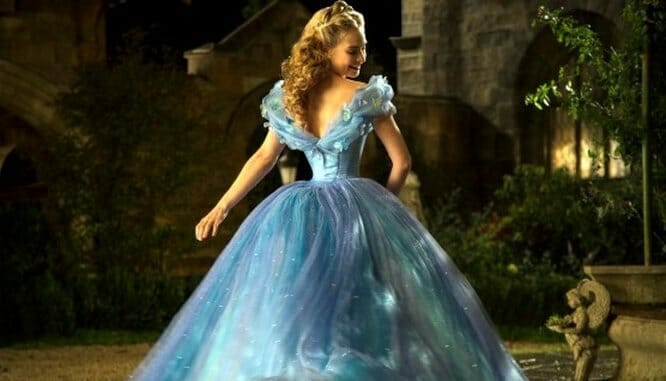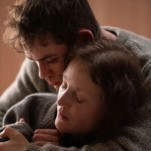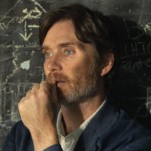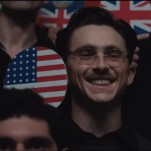Cinderella

The most inventive thing about Kenneth Branagh’s Cinderella may be that it’s not particularly inventive at all. That’s because it doesn’t have to be—it’s Cinderella. Branagh’s take on the ages old fairy tale is a handsomely made affair, but it’s the vein of self-assurance running beneath his aesthetics that makes his film feel vital. Rather than pop the hood on the story and retool its parts, he simply lets them be, tinkering with only a couple of mechanical adjustments here and there in the process (which are so minor that only purists might be bothered to discuss them). We consider narratives like this timeless for a reason, after all, and Branagh is smart enough to know that you don’t mess with a time-honored yarn without good reason.
What we’re left with is a straightforward interpretation of the text: no new additions, no plot contortions, no revisionism. This is the saga of Ella (Lily James), a farm girl raised on courage and kindness by her parents (Ben Chaplin and Hayley Atwell), orphaned following their unceremonious deaths and left at the mercies of her horrible stepmother (Cate Blanchett) and stepsisters (Holliday Grainger and Sophie McShera, so hilarious together they deserve their own comedy hour). It’s up to the audience to decide if they can accept Cinderella for what it is, much as Ella asks her Prince Charming (Richard Madden, a standout in a supporting cast made up of standouts) to take her for the person that she is. Which probably sounds boring—but in practice, the film overflows with its own magic, the kind that only a gifted cast and crew can conjure on a studio soundstage.
A large part of that comes down to Branagh. Like Cinderella itself, his direction here is decidedly classic, thankfully free of the Dutch angles that plagued 2011’s Thor and made with considerably more attention toward pacing than last year’s Jack Ryan: Shadow Recruit. He approaches the material with such deliberate care that his film comes to take on a storybook quality. Watching the picture play out is in a sense watching its pages turn and turn, each page gaining in momentous enchantment. Maybe Branagh knew there’s no reason to remake Cinderella for the screen beyond big box returns (if Maleficent wound up a smash, it’s an easy bet that this will too), and endeavored to make the best spectacle possible. Whatever the case, he’s succeeded in grand fashion.
-

-

-

-

-

-

-

-

-

-

-

-

-

-

-

-

-

-

-

-

-

-

-

-

-

-

-

-

-

-

-

-

-

-

-

-

-

-

-

-








































